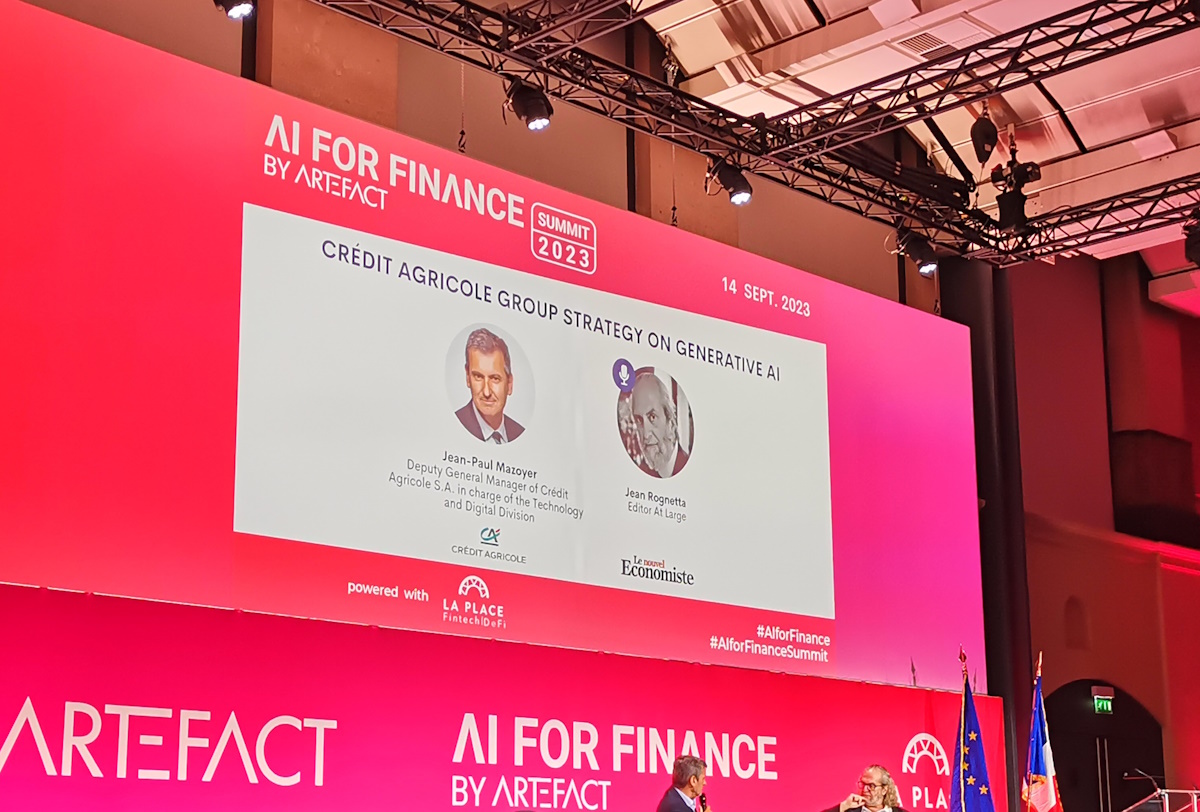French Finance facing the Sputnik effect of AI and Gen AI


The finance and insurance ecosystem will not miss the “revolution” of generative artificial intelligence. Because this is how it should be qualified, believes Jean-Paul Mazoyer, Deputy General Manager of Crédit Agricole S.A. in charge of the Technology and Digital Division.
The leader thus sees in the emergence of this technology a “Sputnik effect”, in reference to the American reaction following the launch of Sputnik by the USSR. Applied to AI, this effect imposes for Jean-Paul Mazoyer the obligation to ”think outside the framework”.
Axa wants AI everywhere and combined with humans
And to act quickly where the actors of finance used to be interested in priority in the most mature solutions. The representatives of the sector present on the occasion of the last edition of the AI For Finance conference organized by Artefact, however, do not advocate rushing or focusing on Gen AI alone.
This one is nevertheless a concern of the moment. This part of AI, to allow use on a scale, requires tools and technical bases. But this is only part of the answer, insists the executive of Crédit Agricole.
Like other of his counterparts, he calls for massive training of employees so that the use of generative AI applications turns out to be as natural for them as email or word processing.
Alexander Vollert, the Director of Operations of the Axa Group, shares this analysis. The executive officer specified the insurer’s ambition in terms of artificial intelligence. It’s simple: AI everywhere. The company already has a portfolio of more than 300 use cases.
Employees trained in prompt
Axa plans to go further, thanks in particular to a thorough exploitation of unstructured data to complete structured data and thus improve operations. Combining all the data for the benefit of processing customer requests or claims, this is the ambition – one of them.
These AI tools must increase the employees and advisors, already solicited to increase digital through the contribution of a layer of human. To this end, Alexander Vollert also insists on the strategic nature of training.
Employees must learn these uses and master the art of prompt as the director of operations taught him years earlier, at the birth of the Web, to create an effective query in a search engine.
For the bosses of Crédit Agricole and Axa, it is appropriate, despite the strong ambitions, to move forward taking into account the risks and impacts on the organization and the transformation of daily tasks.
The AI policy of the 3S: security, sobriety and stability
The words ethics and responsibility are not swept under the rug. Hugues Even, Group Chief Data Officer of BNP Paribas, summarizes the challenges for the bank through three S: security, sobriety and stability.
These concerns are shared by his counterparts Maxime Havez, Chief Data Officer of Crédit Mutuel Arkea, and Aldrick Zappellini, Group Data Director & Chief Data Officer of Crédit Agricole. Arkéa has thus developed a foundation model (open source) taking into account the issues of sobriety and sovereignty.
The Data manager of Crédit Agricole expresses his commitment to the adoption of generative AI, which is part of a demanding methodology that is consistent with his labeling and certification on responsible and industrial AI (Labelia and LNE). AI, unanimously yes, but not at all costs.








